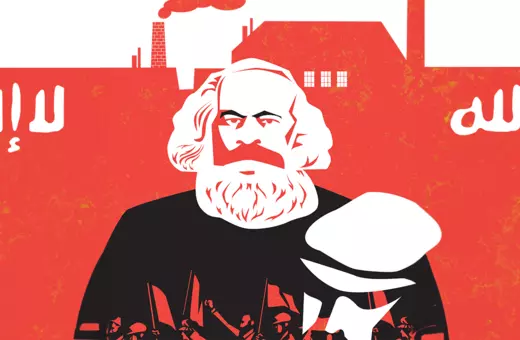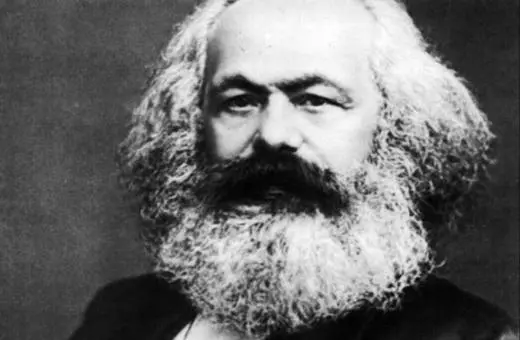Many think of fascism as a phenomenon of the 20th century. But fascism isn’t history, it has simply mutated and adapted to the new millennium. It is more philosophically informed and operationally savvy, and at the same time just as against the modern world and its freedoms as the Taliban. To beat this new strain of fascism we need to reignite the ethos of liberalism and the left, writes Paul Mason.
Paul Mason will be speaking at HowTheLightGetsIn Festival, September 18-19th in London's Hampstead Heath. Explore more here.
Shortly after the Taliban took Kabul, inflicting strategic defeat on the West, the American far-right began a paroxysm of celebrations. “The Taliban is a conservative, religious force, the US is godless and liberal. The defeat of the US government in Afghanistan is unequivocally a positive development”, wrote far-right influencer Nicholas Fuentes.
Those who fantasise about the future disintegration of the US Federal state were ecstatic. For here was a model of how you do it: raise a generation of radicalised youth, detached from normal society, arm them, and take the country working from the remote areas inwards. What failed as a gestural insurrection on 6 January 2021 could one day succeed as a guerrilla war.
Like the Taliban, the American far right hates gays, transgender people, feminists, Marxists, liberals and democracy itself. But there's a deeper, more philosophical reason why they're celebrating.
We are no longer dealing with skinheads and football fans vocalising vague prejudices against liberal society: we are dealing with people who know who Theodor Adorno was and hate him just as much as they hate the kebab shop owner on the corner.
The new fascism operating in the USA, and influential across global networks, is intensely theoretical and overtly anti-modern. We are no longer dealing with skinheads and football fans vocalising vague prejudices against liberal society: we are dealing with people who know who Theodor Adorno was and hate him just as much as they hate the kebab shop owner on the corner.
If we list the main thinkers influencing today's far right - the Russian philosopher Alexander Dugin, Alain de Benoist and Guillaume Faye in France, Pat Buchanan in the USA, and Olavo de Carvalho in Brasil - the lineage of thought back to pre-1914 irrationalism is clear.
They believe, far more viscerally than the first generation of fascists did in the 1920s, that the whole of modernity was a mistake. In this they are the blood brothers of the Taliban: A pro-medieval irrationalism created out of the ruins of a secular state was achieved in Kabul and, they believe, can be achieved in Washington.
According to thinkers like de Benoist and Dugin, the 18th century revolution in science unleashed a process that allowed individuals too much freedom, elevated rationality over emotion and destroyed traditional society. While you could find elements of this critique in Nazism - above all in Goebbels pledge to "cancel the year 1789" - it was not overt in Mussolini's fascism, nor particularly prominent in the state ideologies of mid-20th century fascist regimes.
A pro-medieval irrationalism created out of the ruins of a secular state was achieved in Kabul and, they believe, can be achieved in Washington.
Today, antimodernism and antirationalism form the twin foundations on which the far right has erected a coherent thought architecture, consisting of five propositions.





















Join the conversation